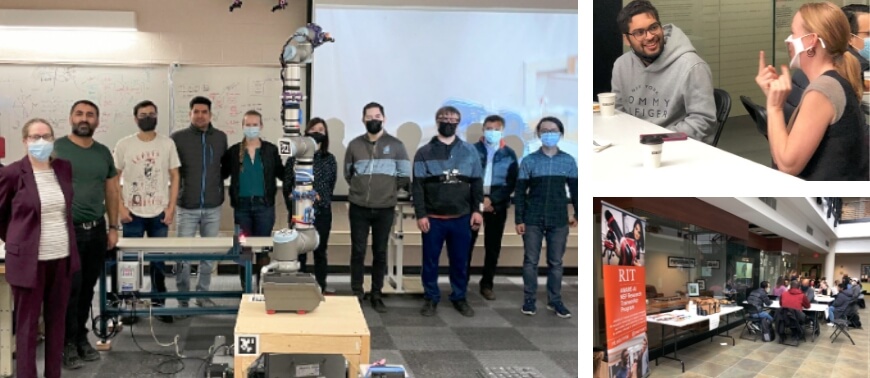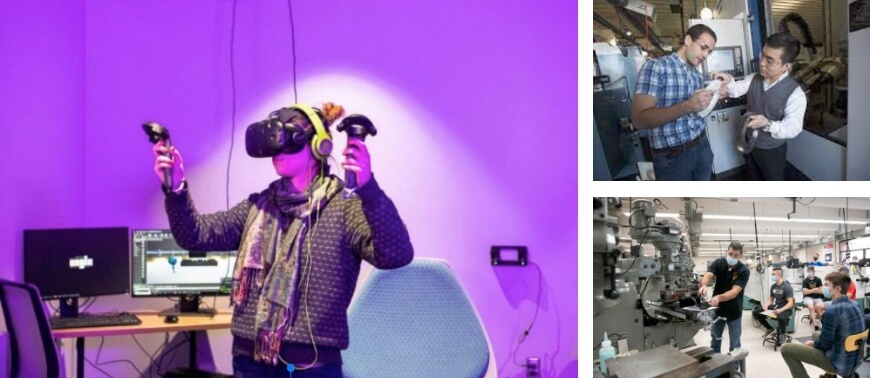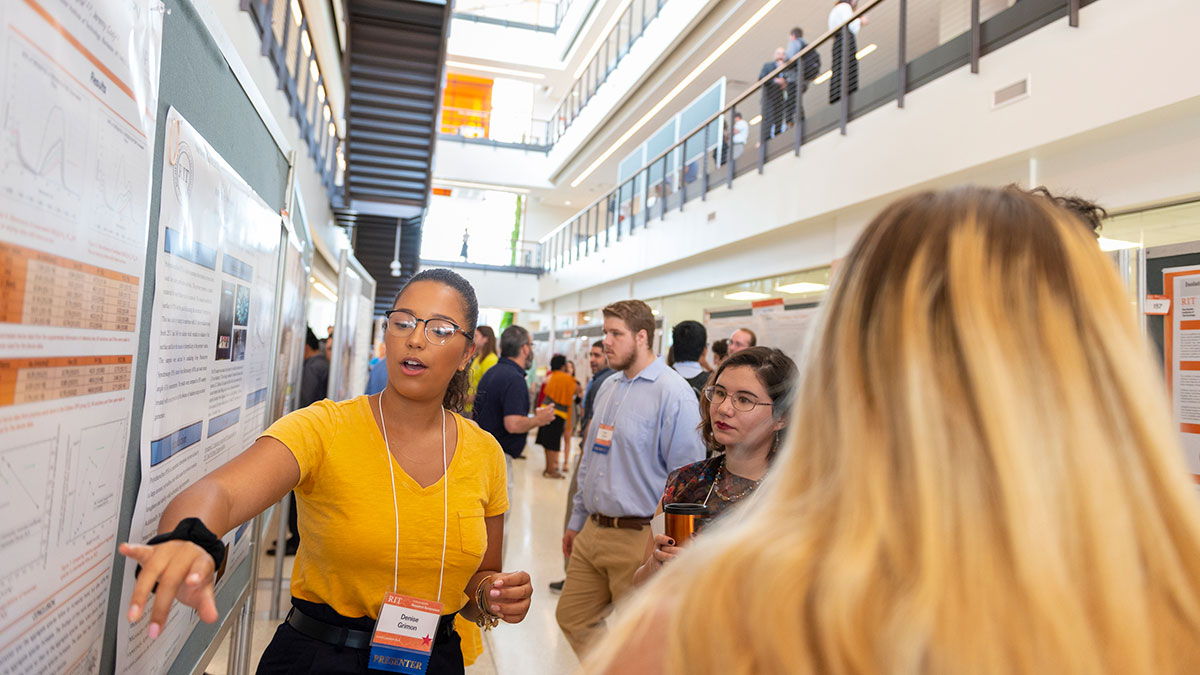Project Spotlight
In the same way that Artificial Intelligence is infused into almost every aspect of our modern lives, it has also found its way into most of the research activities at RIT. This research spans the gamut from those who are developing the next-generation of AI tools, to those that are applying those tools to different research domains, to those that are thinking about the consequences and ethical use of all of these new tools.
Here are just a couple of examples of new federally funded research projects related to AI education and training and how researchers at RIT are using AI to combat “deep-fakes.”
AWARE-AI at RIT
RIT was recently awarded a $2M grant from that National Science Foundation to develop an interdisciplinary research and education program for graduate students in AI.
AWARE-AI Trainees experience convergent AI research guided by accomplished faculty in research tracks and carefully curated and career-enhancing activities that directly address skill gaps in graduate AI curricula, and develop their network in a research community. This program is funded through the NSF’s prestigious and highly competitive Research Traineeship Program (NRT).

Thwarting Deepfakes
The DeFake project led by Endowed Professor and Chair of Cybersecurity Matt Wright is an initiative by a team of researchers at the ESL Global Cybersecurity Institute at RIT aimed at helping journalists and intelligence analysts detect digital deception.
Deepfakes are videos, audio, or images that have been altered using AI. In a deepfake, people can be shown saying and doing things that they have never said or done.
This capability has profound implications for entertainment, politics, journalism, and national security. As deepfakes become more convincing, the challenge of distinguishing fact from fiction grows, threatening the credibility of news sources and the stability of democratic institutions.
At RIT, a team of student and faculty researchers is leading the charge to help journalists and intelligence analysts figure out what is real and what is fake. Their work, called the DeFake Project, has more than $2 million in funding from the National Science Foundation and Knight Foundation.

Manufacturing training with AI and virtual reality technology
Engineering and game design faculty are combining expertise to build training process and retain knowledge of experienced manufacturing engineers.
Professors Yunbo Zhang in KGCOE and Chao Peng in GCCIS School of Interactive Games and Media and their students at Rochester Institute of Technology are using augmented and virtual reality as part of a modern training platform to help address the skilled labor shortage in manufacturing are using artificial intelligence (AI) and augmented or virtual reality (AR/VR) applications as a training strategy can support novice trainees in learning critical manufacturing skills. This is part of a new NSF funded project entitled “Exploring Tacit knowledge with Artificial Intelligence and Virtual/Augmented Reality for Future Machinists Preparation.”

